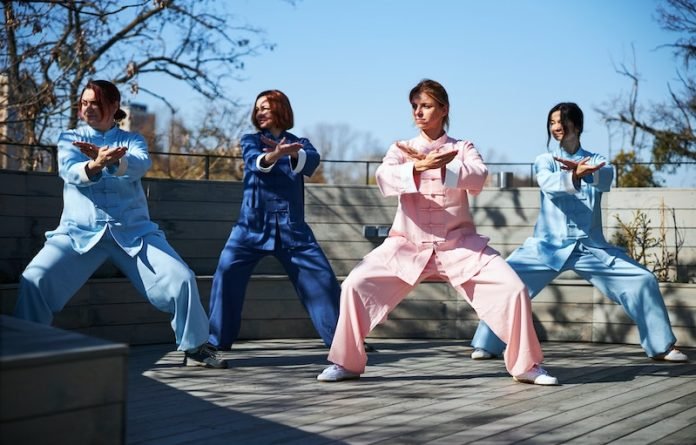
In a study from Yunnan University of Traditional Chinese Medicine, scientists found a seated form of a traditional martial art can help stroke survivors regain strength and balance and help relieve depression symptoms as well as or better than standard post-stroke exercise programs.
It was the first study to analyze the ability of a modified tai chi program to help stroke survivors recover.
Tai chi combines deep breathing with a series of slow, careful movements of the hands, arms, neck, legs and core.
A 2014 scientific statement about activity and exercise for stroke survivors highlights tai chi and yoga as flexibility and muscle strength training programs that can improve balance, quality of life and mental health while reducing the fear of falling.
AHA guidelines issued in 2019 for managing stroke recommend beginning a rehabilitation program within the first week and sticking with it for up to six months.
Many people fail to do so because they lack physical stability or are unable to move their arms.
In this study, the team tested 160 adult stroke survivors were assigned to sitting tai chi or a standard stroke rehab exercise program within six months of their first stroke.
The standard program included a series of upper limb movements recommended by the hospital. Participants in both groups, whose average age was 63, had the use of at least one arm.
The sitting tai chi group received one week of individualized training with an instructor and a self-guided video for use at home three times a week for 11 weeks.
Those in the standard exercise program were given the self-guided video to use at home for 12 weeks. In both groups, family members and caregivers supervised at-home exercises.
At the end of three months, the team found those in the sitting tai chi group had better hand and arm function and sitting balance control, big reductions in depression symptoms and better shoulder range of motion compared to people in the standard exercise group.
They also showed greater improvements in daily living activities and quality of life.
More than half the people who practiced sitting tai chi continued to do so after 12 weeks and continued to see improvements for up to four more weeks.
The team says people will most likely need to adhere to the sitting tai chi exercise beyond 12 weeks to get the beneficial long-term effects.
If you care about stroke, please read studies about strong links between vitamin D and heart disease, stroke, and death, and Olive oil could help lower risks of heart disease and stroke.
For more information about stroke, please read studies about doing this after stroke is critical for long-term survival and this cholesterol in body can predict stroke, heart attack effectively.
The study was conducted by Jie Zhao et al and published in the American Heart Association journal Stroke.
Copyright © 2023 Knowridge Science Report. All rights reserved.



